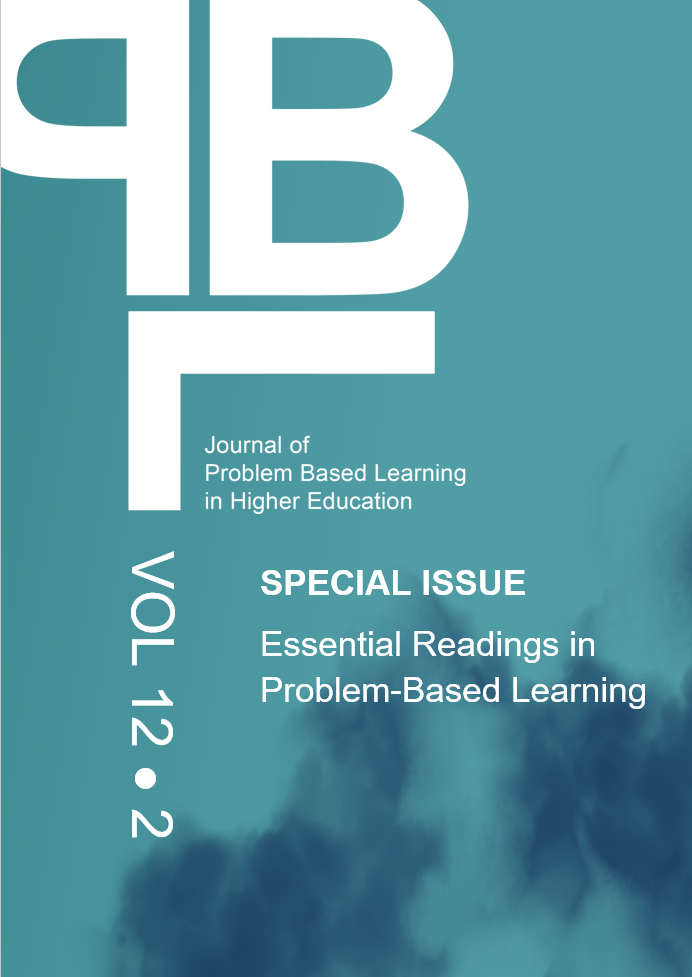Abstract
In this short piece, I will dwell on two passages from John Dewey’s book Human Nature and Conduct (1922): the section entitled “Deliberation and Calculation” and the following section “The Uniqueness of Good.” In these passages, Dewey explains the crucial differences between utilitarianism and his own philosophy, and he elucidates how and why what is “good” happens only once: “In quality, the good is never twice alike. It never copies itself. It is new every morning, fresh every evening” (p. 146). I wish to dwell on these passages because they, as I see it, represent a major challenge to the utilitarian impulse in normativizing PBL and related approaches for the sake of learning or for some societal good. Dewey’s problem-based philosophy, while central to PBL, is also a critical resource for critiques of how we implement PBL programs and practice PBL pedagogies. In these passages, Dewey reveals his belief in the educational event as a unique situation, a happening, which purposefully imagines an outcome but in a fundamentally different way than what we today call outcomes-directed or evidence-based education.
References
Dewey, J. (1896). The reflex arc concept in psychology. Psychological Review, 3(4), 357-370. https://doi.org/10.1037/h0070405
Dewey, J. (1916). Democracy and education: An introduction to the philosophy of education. Macmillan.
Dewey, J. (2008). Human Nature and Conduct. Southern Illinois University Press.
Dewey, J. (2016). The Public and Its Problems. An Essay in Political Inquiry. Swallow Press.
Kallen, H. M. (1918). The Book of Job as a Greek Tragedy. Moffat, Yard, and Company.
Luhmann, N. (1976). The Future cannot Begin. Temporal Structures in Modern Society. Social Research, 43(1), 130-152.
Peirce, C. S. (1893). Evolutionary Love. The Monist, 3(2), 176-200. https://doi.org/10.5840/monist18933235

This work is licensed under a Creative Commons Attribution 4.0 International License.
Copyright (c) 2024 Jakob Egholm Feldt
